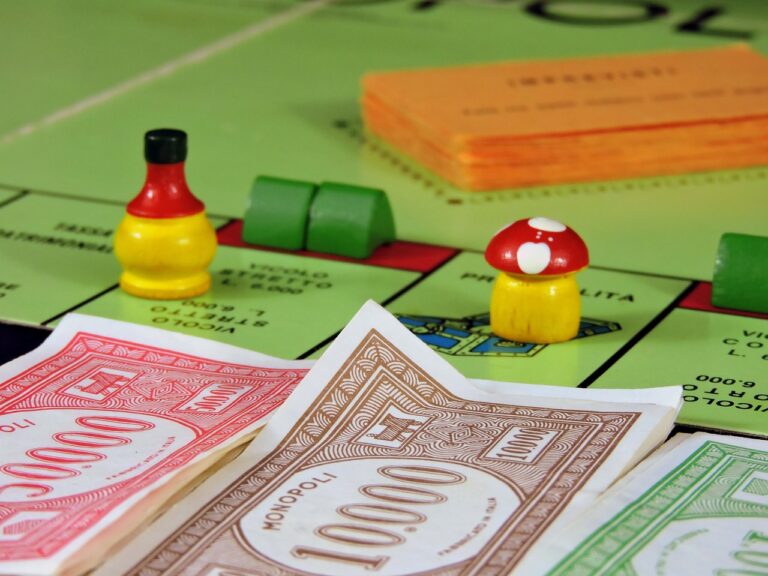Understanding the Role of Psychology in IPL Fan Behavior Analysis
World777, Satsport: Indian Premier League (IPL) is not just a cricket tournament, but a cultural phenomenon that has captivated millions of fans around the world. The tournament’s success is not only due to the thrilling matches and stellar performances but also because of the deep emotional connection fans have with their favorite teams and players. In this article, we will explore the role of psychology in analyzing IPL fan behavior and understanding what drives their passion and loyalty.
The Psychology of Sports Fandom
Sports fandom is a complex phenomenon that involves a range of psychological processes. Fans develop emotional attachments to their favorite teams, players, and even specific colors or logos. This emotional connection can lead to feelings of pride, joy, and even a sense of belonging to a larger community of like-minded individuals.
Psychologists have studied sports fandom for decades and have identified several key factors that influence fan behavior. These include social identity theory, where fans derive a sense of self-worth from their affiliation with a particular team, and cognitive dissonance, where fans rationalize their support for a team even in the face of poor performance.
Psychological Factors Influencing IPL Fan Behavior
When it comes to IPL fan behavior, several psychological factors come into play. One of the most significant is the concept of social identity. Fans often see themselves as part of a larger group of supporters and derive a sense of identity and belonging from their affiliation with a particular team.
Additionally, the concept of ingroup bias can influence fan behavior. Fans tend to see their team as superior to others and may exhibit biased perceptions and judgments in favor of their team. This bias can lead to increased loyalty and support, even in challenging times.
The Role of Emotional Contagion in Fan Behavior
Emotions play a crucial role in fan behavior, with fans experiencing a wide range of feelings during matches. The concept of emotional contagion suggests that emotions can be transferred from one person to another, leading to a shared emotional experience among fans watching a game together.
During IPL matches, fans may experience a rollercoaster of emotions, including excitement, frustration, and euphoria. These emotions can be contagious, spreading through a crowd and creating a sense of collective unity and shared experience.
The Influence of Team Performance on Fan Behavior
Team performance is a significant driver of fan behavior in the IPL. When a team is performing well, fans are more likely to feel pride, excitement, and loyalty. On the other hand, poor performance can lead to feelings of disappointment, frustration, and even anger.
Psychologists have identified the concept of basking in reflected glory, where fans experience a boost in self-esteem when their team wins, as well as cutting off reflected failure, where fans distance themselves from a team’s poor performance to protect their own self-esteem.
Understanding Fan Rituals and Superstitions
Many fans engage in rituals and superstitions during IPL matches, believing that these actions can influence the outcome of the game. These rituals can range from wearing specific clothing to sitting in a particular spot or even avoiding certain activities on match days.
Psychologists suggest that these rituals provide fans with a sense of control and predictability in an otherwise uncertain environment. By following these rituals, fans may feel a sense of comfort and connection to their team, even though the outcome of the match is ultimately out of their control.
The Impact of Social Media on IPL Fan Behavior
Social media has had a significant impact on IPL fan behavior, providing fans with a platform to connect with other supporters, share their thoughts and opinions, and engage with players and teams directly. Platforms like Twitter, Instagram, and Facebook have become vital tools for fans to express their passion and loyalty.
Psychologists suggest that social media can amplify the emotional experiences of fans, creating a sense of virtual community and shared identity. However, social media can also lead to conflict and tension among fans, especially when rival teams clash or controversial incidents occur during matches.
FAQs
1. Why do fans feel such a strong emotional connection to their favorite IPL teams?
Fans develop emotional connections to their favorite IPL teams due to factors such as social identity, ingroup bias, and emotional contagion. These factors create a sense of belonging and shared experience among supporters.
2. How does team performance influence fan behavior during IPL matches?
Team performance can significantly impact fan behavior, with wins leading to feelings of pride and loyalty, while losses can result in disappointment and frustration. Fans may also experience basking in reflected glory or cutting off reflected failure in response to their team’s performance.
3. Why do fans engage in rituals and superstitions during IPL matches?
Fans engage in rituals and superstitions as a way to feel a sense of control and connection to their favorite team. These actions can provide comfort and predictability in an otherwise unpredictable environment and allow fans to feel more actively involved in the outcome of the game.
4. How has social media impacted IPL fan behavior?
Social media has had a significant impact on IPL fan behavior by providing fans with a platform to connect with other supporters, share their thoughts and opinions, and interact with players and teams. Social media can amplify emotional experiences, create a sense of virtual community, and sometimes lead to conflict among fans.
Overall, the psychology of sports fandom is a fascinating and multifaceted field that offers valuable insights into the motivations and behaviors of IPL fans. By understanding the role of psychology in analyzing IPL fan behavior, teams and organizations can better engage with their supporters and create meaningful connections that last a lifetime.







